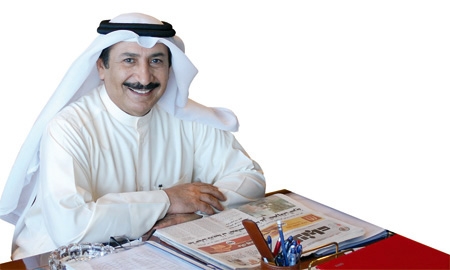The KDP encompasses H.H. the Emir’s vision to transform Kuwait into a regional trade and finance center by 2035. It also envisions greater private sector input that will directly affect the banking sector, as these projects will require increased financial backing. As a result, banks play a major role in Kuwait’s growth strategy.
“Kuwait’s banking sector will be given ample opportunities to participate in the financing of projects. This will have a direct positive impact on Kuwait’s GDP. The expansionary monetary policy will increase liquidity and further develop the economy,” comments Mustafa Al-Shamali, Minister of Finance.
Fortunately for the KDP, the financial sector recovered comparatively quickly from the global financial crisis, thanks to quick government res-ponses that included liquidity support, the introduction of a financial stability law, and the Central Bank’s requirement that banks make precautionary provisions.
Al-Shamali says that the actions taken to minimize negative fallout in the face of the financial crisis will also help Kuwait withstand the geopolitical crisis that various Middle Eastern and North African countries are undergoing.
While banking and finance are playing an ever-more important role in Kuwait’s development, so is the insurance sector. Article 50 of the country’s Insurance Law states that all assets in Kuwait must be insured from within Kuwait.
Consequently, “insurance companies operating in Kuwait will have to be involved in the Development Plan by law,” says Tawfik Al-Bahar, managing director of
Warba Insurance. “Kuwait’s insurance market is poised for major development and the premium is likely to be doubled within three to five years,” he adds.
| A CHANGE IN KUWAITI MENTALITY IS RESULTING IN A YOUTHFUL SURGE IN INSURANCE. |
This growth is already underway. Kuwaiti insurance companies grew 15.9% in the first half of 2010, as opposed to an 8.3% rise in the same period in 2009. Although there are presently 33 insurers operating in Kuwait, the market is dominated by four main players: Gulf Insurance, Kuwait Insurance, Al-Ahleaia Insurance and Warba Insurance.
The KDP, the Privatization Law and the possible passing of an Insurance Reform Bill are due to boost expansion in the sector, as they will make insurance mandatory in certain areas.
“We welcome the new reform bill, which might impose compulsory insurance if the property is used by the public, such as shopping malls, amusement parks, and so forth,” says Al-Bahar.
Other factors, such as an emerging younger population, increasing awareness of the wisdom of insurance (until recently, insurance was simply not a common part of the Kuwaiti culture), and prospects beyond Kuwait’s borders, are contributing to the growth of this industry. Moreover, special “Takaful” insurance products are being promoted by the Takaful companies, which comprise about half of all insurers in Kuwait.
“Takaful insurance represents a way of investment based on Shariah law. There is no interest and money comes back to the contributors. Takaful means cooperation,” explains Nasser Al-Omar of Gulf Takaful Insurance Company.
Al-Bahar says, “If the right types of Takaful products are offered with good marketing techniques, then there is a bright market for these products. As the majority of the Kuwaiti population—some 95%—are Muslims, Takaful insurance products have a very promising future.”
Warba, the company that first insured both Kuwait Airways’ and the Ministry of Defense’s aircraft as well the oil industry as a whole, was established by Amiri Decree in 1976 and privatized in the late 1990s. It is the only company in the Gulf region to have eight alliances with international insurance companies, a factor that enables Warba to offer a wider range of products with specialized features.

0 COMMENTS